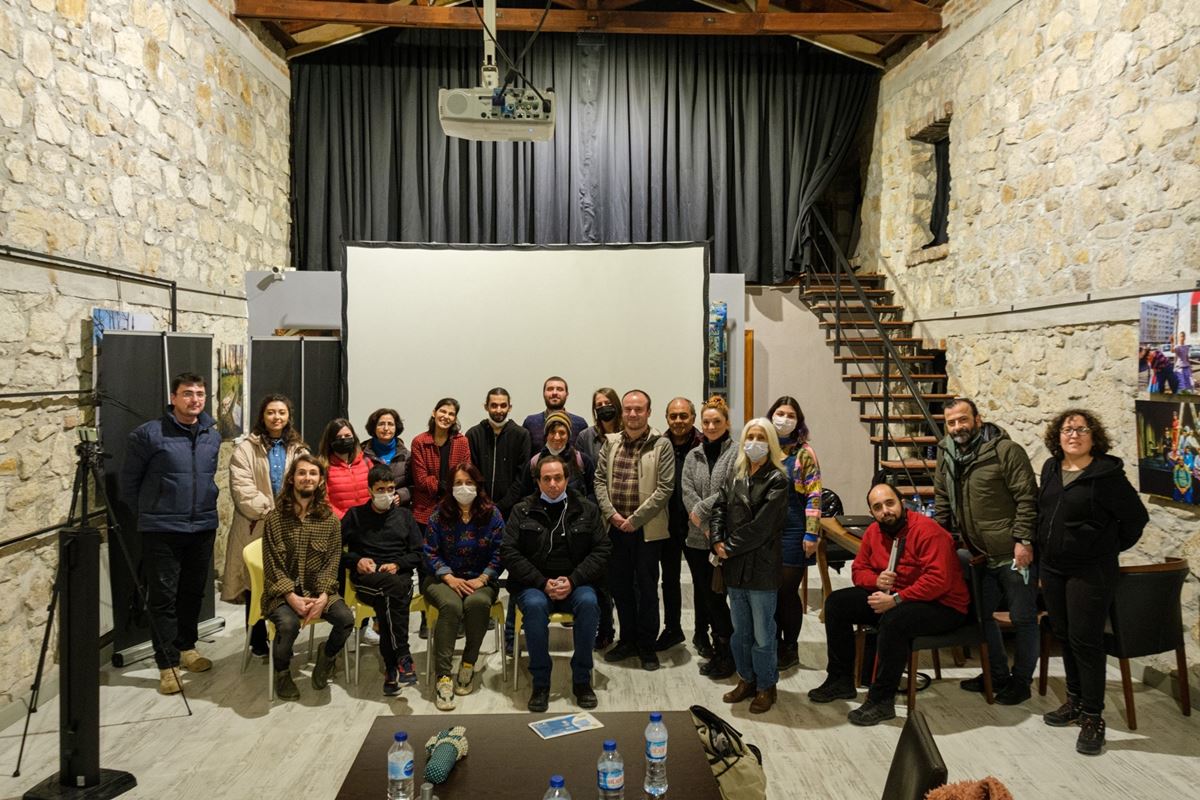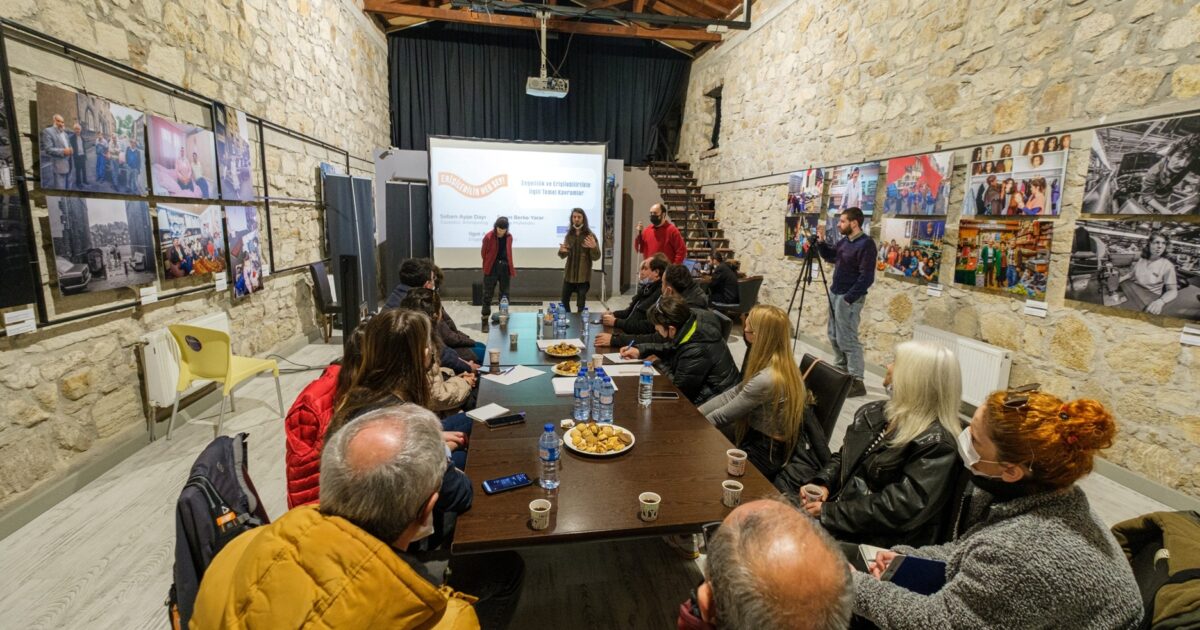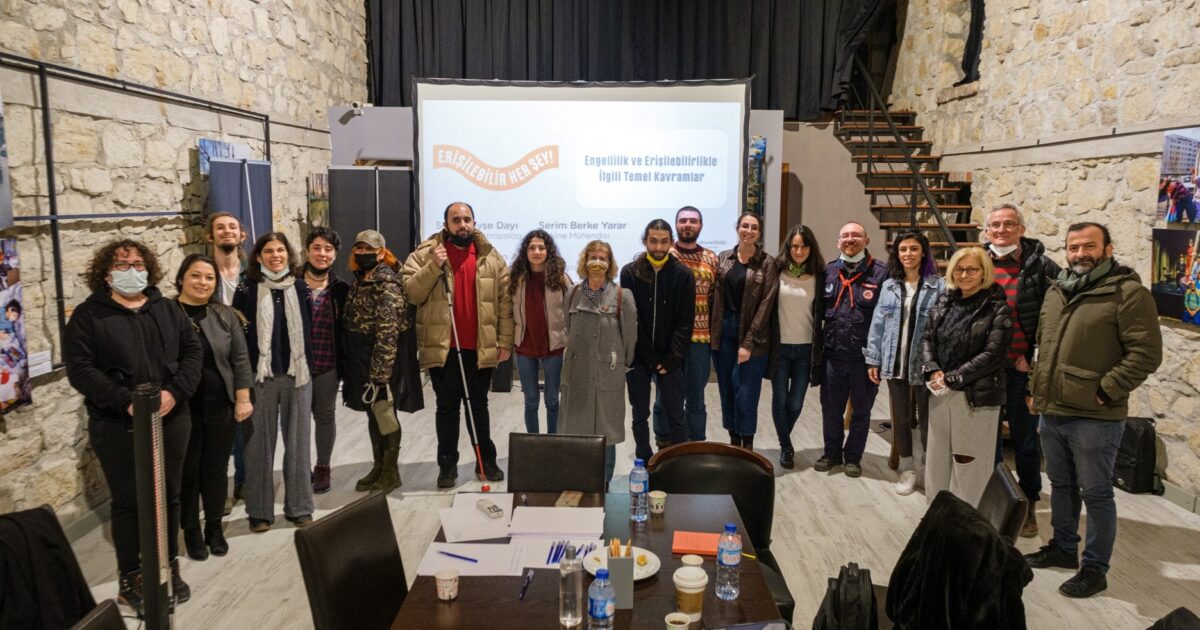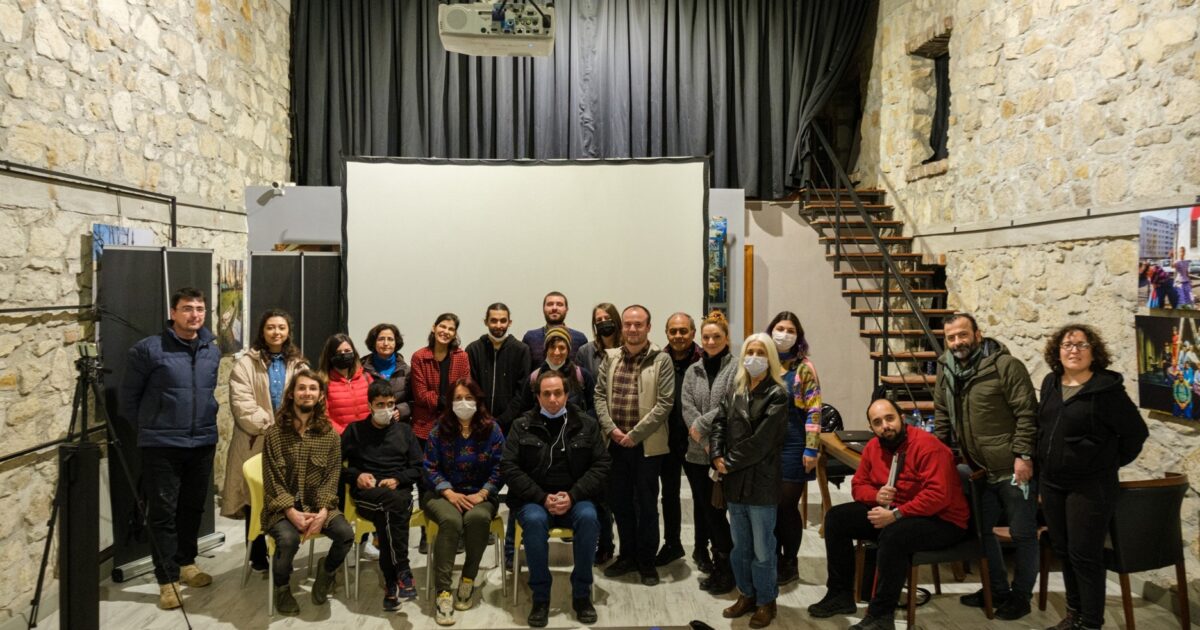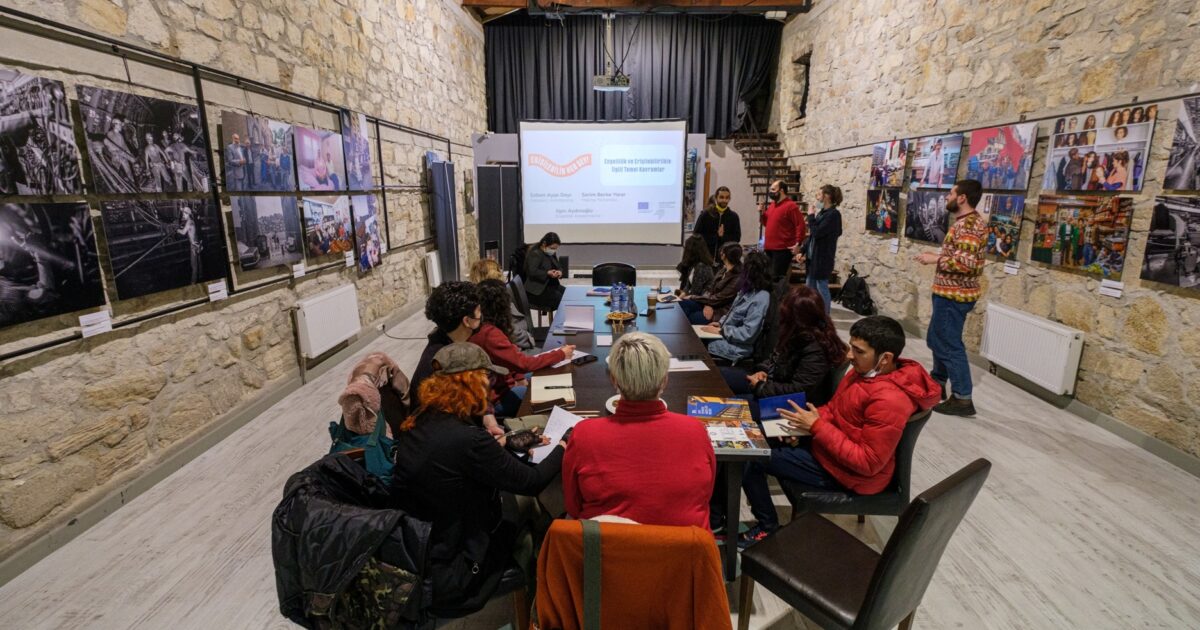ÇEKE Project trainings took place in Mahal
Acting with the mission of supporting the full and equal participation of persons with disabilities in society and creating an inclusive society, with the aim of ensuring accessibility in all areas, the ÇEKE Project, implemented by Accessible Everything in partnership with the Troya Cultural Association and with the support of the CultureCIVIC: Culture and Arts Support Program (a project of the European Union), is aimed to strengthen the capacities of institutions working in the field of culture and arts in the context of disability and accessibility in Çanakkale.
The first activity of the project, a half-day training conducted by the founding partners of Accessible Everything, Seben Ayşe Dayı and Serim Berke Yarar, and consultant Ilgın Aydınoğlu, was held at MAHAL on February 20-21. The training was attended by the representatives of the Museum of Troy, Troy Excavation Directorate, Troia Foundation, Gallipoli Wars Historical Site Directorate, ÇOMÜ Faculty of Fine Arts, Çanakkale City Council Culture and Arts, Disability and Women Assemblies, ÇATKAV, Koza Youth Association, Young Environment Association, Çanakkale 1915 Scouting Youth and Sports Club, Discover Your Own Way - Support to Life Association and ÇAKEV Association as well as artists and instructors.
In the first part of the training, representatives of Everything Accessible provided information on basic issues such as different types of disability, problems in social perception, correct behaviour models, and the concepts of accessibility, disability and hindered individuals. “A hindered individual is an individual with physical, sensory, cognitive and mental differences who cannot access information, education, politics and legal rights as a result of society / social mechanisms not implementing accessibility regulations” definition is discussed and they emphasized that if there is accessibility, there is no disability. The training continued with presentations on different methods and practices related to communicative, contextual and physical accessibility. In the last part of the training, the participants exchanged views on their cultural institutions, non-governmental organizations and their work on accessibility in their artistic activities and what kind of practices they can develop within the scope of the project.
In the continuation of the ÇEKE Project, the accessibility practices they want to implement in the Çanakkale cultural ecosystem will be discussed and implemented through a communication platform that will consist of training participants.
